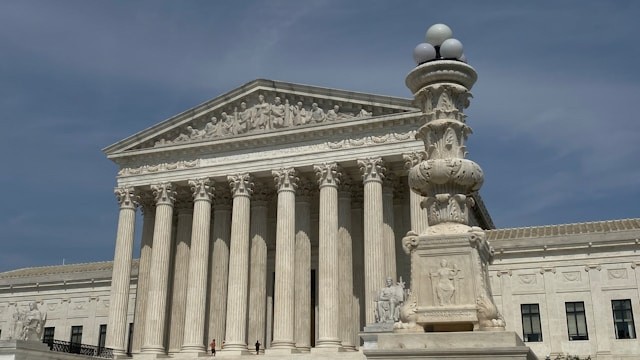
Following a decision by Colorado's highest court, which deemed former president Donald Trump unfit for running in the presidential race due to his actions linked to January 6, the U.S. Supreme Court justices appear conflicted. A monumental two-hour hearing saw the court delve into arguments that may determine Mr. Trump's eligibility in the subsequent primary elections as the foremost candidate for the Republican Party's nomination.
In the former year, the Colorado Supreme Court's justices sidelined Mr. Trump under the 14th Amendment's Section 3 clause. It declares that no person who partakes in an insurrection or rebellion against the United States can hold any civil or military office. However, Thursday's hearing raised doubts among conservative and liberal justices over the ability of states to disqualify federal candidates independently from Congress.
Implications and Interpretations of the Constitutional Law
John Roberts, the Chief Justice, warned against permitting individual states to reign over federal election candidate selection, stating it contradicts the Constitution. He claimed that decisions to exclude Mr. Trump could spur efforts to ban candidates from "the other side." Questions like, "Why should a single state determine not only for themselves but for the entire nation?" were posed by Justice Elena Kagan, indicating the delicate thread on which these proceedings lie.
Conversely, Justice Sonia Sotomayor critiqued Trump's legal reasoning as a gerrymandering rule contrived solely for his advantage.
Insurrection or Riot? The Legal Tussle Continues
The term "insurrection" became a focal point of discussions. Specifically, whether Mr. Trump had any part in it. The court turned to defining the term after a group of Trump supporters. Fueled by his unfounded claims of a rigged election, he stormed the U.S. Capitol to halt the certification of 2020 presidential election results. Still, the justices spent relatively little time addressing this area.
Jonathan Mitchell, the attorney representing Mr. Trump, argued before the justices, claiming that even a self-confessed insurrectionist should be allowed to run for and be elected to office. The decision to remove such a candidate falls on Congress, not the states. Trump's representatives argue that the Capitol attack was merely a riot and didn't showcase any signs of insurrection.
The Trajectory and Impact of the Lawsuit
The lawsuit began when government watchdog group Citizens for Responsibility and Ethics in Washington took up the case. Representing a collection of independent and Republican voters in Colorado, they argued that Mr. Trump failed Section 3's test, making him constitutionally ineligible to appear on any Colorado ballot for state or federal office.
After a trial and argument, Colorado district judge Sarah Wallace concluded that Mr. Trump didn't just engage in insurrection. He acted with a specific motive to provoke political violence and direct it at the Capitol to disrupt the electoral certification.
The affair places the Supreme Court at the center of a power struggle that merges questions surrounding electoral qualifications, constitutional interpretations, and the integrity of democratic processes.
Trump's Legal Challenges Continue
Trump's lawyers may return to the Supreme Court later this year if they appeal against a federal court ruling. The ruling nullified his immunity defense from prosecution on charges relating to his attempts to overturn election results.
Norma Anderson, the challenge's lead plaintiff and a former Colorado state legislator, shared, "This case is very personal to me. I've gone through a lot of presidents, and this is the first one that is trying to destroy the Constitution."
While Trump referred to the hearing arguments as a "very beautiful process," he continues to stand by his unsubstantiated claims of a Democratic conspiracy against him. What the Supreme Court decides in the appeal of Trump v Anderson will play a pivotal role in shaping the future electoral landscape.




